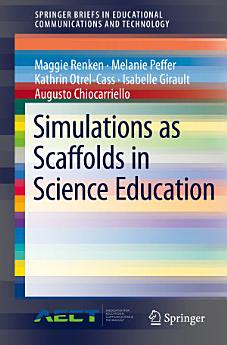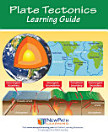Simulations as Scaffolds in Science Education
Nob 2015 · Springer
E-book
39
Mga Page
reportHindi na-verify ang mga rating at review Matuto Pa
Tungkol sa ebook na ito
This book outlines key issues for addressing the grand challenges posed to educators, developers, and researchers interested in the intersection of simulations and science education. To achieve this, the authors explore the use of computer simulations as instructional scaffolds that provide strategies and support when students are faced with the need to acquire new skills or knowledge. The monograph aims to provide insight into what research has reported on navigating the complex process of inquiry- and problem-based science education and whether computer simulations as instructional scaffolds support specific aims of such pedagogical approaches for students.
Tungkol sa may-akda
Maggie Renken is an Assistant Professor in the Educational Psychology program at Georgia State University. Broadly, her research focuses on scientific thinking and the acquisition of science knowledge. Her work has considered how adolescents and young adults learn and alter inaccurate prior beliefs through various media, including computer simulations, text, and hands-on experimentation. This research is intended to inform approaches for assessing and improving reasoning and thinking skills. Melanie Peffer has a PhD in molecular biology and is a postdoctoral associate in the Educational Psychology department at Georgia State University. Melanie’s research program integrates her training in molecular biology and the learning sciences to create a synergistic program of study. Her work examines student learning during authentic inquiry. Kathrin Otrel-Cass is an Associate Professor in Science Education. She leads the techno-anthropology video lab and is the co-leader of the techno-anthropology research group. Kathrin is interested in ICT and its role in mediating learning and practices in science and technology and in science education. Kathrin also is interested in culturally responsive pedagogy and the nature of interactions in science and technology. Kathrin is an experienced classroom-based researcher and has published on assessment for learning, culture in science education and classroom-based research methods. She has lived and researched internationally in Austria and NewZealand before coming to Denmark. Isabelle Girault is an Associate Professor at the University of Grenoble-Alpes (France). Her research concerns Chemistry Education and learning sciences through a scientific inquiry process with the use of ICT. This research focuses on how a computer environment can scaffold the activity of experimental design and more precisely the elaboration of protocols by students through automatic feedbacks. Augusto Chiocarriello is a Researcher at the Italian National Research Council’s Institute for Educational Technology. He obtained his Physics degree (magna cum laude) in 1980 at the University of Naples. From 1982 to 1986, he worked in physics education at the Educational Technology Center, UC Irvine, initially as a National Research Council research fellow and subsequently as project manager. In 1986, he joined the Institute for Educational Technology as a researcher and he worked on exploiting multimedia technology in design and development of learning systems in several EC DELTA projects. Since 1995, he has collaborated with Reggio Emilia infant schools, exploring the use of computational construction kits as learning tools for early childhood education. More recently, he has coordinated the Institute’s participation in the IST-WebLabs project.
I-rate ang e-book na ito
Ipalaam sa amin ang iyong opinyon.
Impormasyon sa pagbabasa
Mga smartphone at tablet
I-install ang Google Play Books app para sa Android at iPad/iPhone. Awtomatiko itong nagsi-sync sa account mo at nagbibigay-daan sa iyong magbasa online o offline nasaan ka man.
Mga laptop at computer
Maaari kang makinig sa mga audiobook na binili sa Google Play gamit ang web browser ng iyong computer.
Mga eReader at iba pang mga device
Para magbasa tungkol sa mga e-ink device gaya ng mga Kobo eReader, kakailanganin mong mag-download ng file at ilipat ito sa iyong device. Sundin ang mga detalyadong tagubilin sa Help Center para mailipat ang mga file sa mga sinusuportahang eReader.




